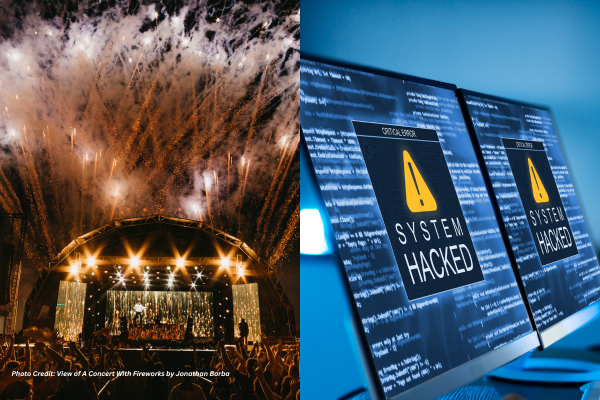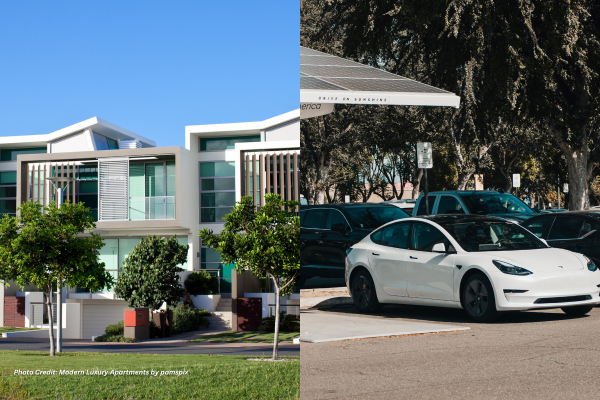It’s possible that without widespread digital adoption, Australia would have ground to a complete halt over the last few years.
We’ve relied on and embraced the simplicity of digital services to work, study, shop, and connect with loved ones. Whole industries have digitised large parts of their operations, such as healthcare, which saw telehealth rolled out during the pandemic and has since made it a permanent fixture to deliver care in remote areas.
Rather than abating as we emerge from the pandemic, digital adoption is accelerating. Worldwide spending on public cloud services is predicted to grow more than 20 per cent this year, topping the forecast for 2022.
Although the benefits are boundless, certain factors have emerged that are poisoning the chalice of this new digital age.
Check out: Australia bumped out of top 10 countries targeted by ransomware
The obvious threat is cyber-criminals capitalising on the broadened attack surface. Last year, a string of high-profile, local entities fell victim to sophisticated data breaches, compromising the data of millions of Australians.
Around the same time, we learnt that cyber crimes in Australia are increasing dramatically and that locals had lost a record $2 billion to scams. This has rocked consumer confidence and left business heads scrambling for a solution.
Of course, all of this is happening against a backdrop of an ongoing skills shortage, with the government signalling our need to fill 653,000 technology roles before 2030 to plug defence gaps and properly participate in the global digital economy.
Adding to the fire are inflation and supply chain disruptions, which are impacting the bottom lines of businesses. Consumers, meanwhile, are becoming increasingly judicious with their spending decisions to keep pace with the cost of living, and understandably fickle when faced with an unrelenting deluge of brands and data.
This paints quite a disheartening picture for organisations of all sizes, and many may be reluctant – or unsure – about making that initial step towards that light at the end of the tunnel. But those small, first steps are exactly what’s missing from the equation.
Applying digital thinking to the new world
Humans have a habit of first approaching new problems with outdated solutions. After developing the first affordable automobile, Henry Ford is rumoured to have said “if I had asked people what they wanted, they would have said faster horses.”
We should distance ourselves from applying analogue solutions to digital challenges.
For example, it’s unlikely thousands of people will crop up one day to fill technology roles, particularly when a range of other industries, from construction to hospitality, are experiencing their own talent shortages.
It’s also unlikely the perfect cyber professional will walk into our business, unfurl their war map, and solve the world’s security issues.
We can’t afford to wait any longer, as doing so will only speed up attacks, delay innovation, and leave customers feeling disillusioned.
The first step is to break down siloes and spread digital and cyber skills throughout teams. While a centralised IT team can handle requirements like systems deployment, compliance, and threat detection, IT skills should traverse departments.
Each team should be armed with the technological skills to address business-driven needs as they arise and complete their tasks as efficiently as possible.
Cyber-security, specifically, is an all-hands-on-deck endeavour, as every device, employee, and customer touchpoint is a potential entry point for criminals.
Employees should have access to the tools needed to exercise proper cyber hygiene, rather than relying on under-resourced IT teams to assume responsibility entirely.
Leaders should augment these skills with the myriad benefits presented by artificial intelligence (AI) and machine learning (ML).
Our recent study of business leaders found Australia and New Zealand lag behind the rest of the world when it comes to AI and ML adoption. This is despite 82 per cent of local respondents recognising its role in strengthening security, and 62 per cent believing it will play a bigger part within the next five years.
Hesitation likely comes from fear of replacement, but these technologies can instead complement employees’ experiences, freeing them from routine administrative tasks and allowing them to focus on driving business outcomes and connecting with customers.
Check out: NT builds strong local workforce with cyber security opportunities
In the cyber realm, these technologies can be used to identify ransomware by assessing incoming communication against large data sets and automatically detecting anomalies, as well as classifying threats by type. AI-enabled cyber protections can be used around the clock, negating the need for 24/7 personnel, and threat identification can occur within seconds.
Perhaps most importantly – although it can be frustrating to hear – is the fact leaders need to take a long-term, considered approach to solve current issues. There’s a reason the tortoise and the hare have endured as a fable, and by planting the seeds now, leaders will reap the benefits down the track.
This could involve building talent from the ground up by giving current or prospective employees the chance to develop and grow over time, rather than expecting them to have all the necessary skills upfront.
It could also mean dipping your toes into lesser-explored technologies to preview their benefits before expanding these solutions into other departments and processes. This way you won’t have to completely overhaul existing systems or overwhelm the staff.
It’s no secret that organisations are inundated with cyber threats, skills shortages, economic pressures, and waning consumer confidence. While solutions may not be immediate, there are ways we can begin unshackling ourselves from these challenges in resourceful ways aligned with the digital world, rather than waiting for the analogue horses to catch up.
Vinayak Sreedhar is Country Manager Australia for enterprise IT management software company ManageEngine.
Vinayak Sreedhar is Country Manager, Australia for enterprise IT management software company ManageEngine, part of Zoho Corporation. Sreedhar held a number of senior roles at Zoho prior to this and has extensive experience building and developing business in enterprise software solutions in the Asia-Pacific market. He also has deep experience developing growth opportunities for global systems integrators, service providers, channel partners, and distributors.






























































